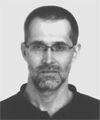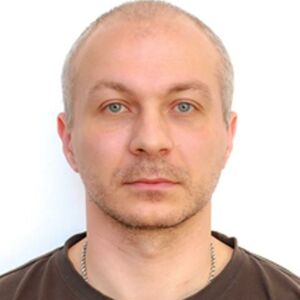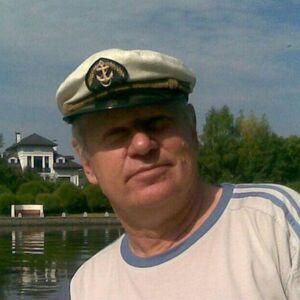Беликова Е.К., Саратовская Л.Б. - The United Kingdom and United States of America in Past and Present (1268141), страница 4
Текст из файла (страница 4)
Thecoronation of Queen Elizabeth II took place in 1953, a year after herfather's death in 1952.The monarch is expected to be politically neutral,and should not make political decisions.Nevertheless, the monarch still performs someimportant executive and legislative duties. In lawshe is the head of the executive and of the judiciarybodies, head of the Church of England, andcommander-in-chief of the armed forces.
AmongQueen Elizabeth's duties are the regular visits toforeign countries, especially those of theCommonwealth, opening and dissolving Parliament, giving her royalassent to legislation, passed by Parliament; appointing minister, judges,diplomats and bishops of the Church; conferring honours, such aspeerages and knighthoods; remitting sentences passed on convictedcriminals; declaring war or peace with an enemy country.The Queen has also started the tradition of the "walkabout", whenshe walks among the public crowds and stops to talk to some people. Theannual Christmas broadcast made by the Queen on radio and televisionhas become a traditional and popular feature of the British life.The Queen's heir Charles, Prince of Wales (1948) has two childrenPrinces William and Harry.
He is well-known as a keen promoter ofBritish interests. In recent years he has become outspoken on suchcontroversial topics as modem architecture, violence in films andtelevision, and the standards of English teaching in schools. His first wifeDiana Spencer who tragically died in 1997 used to win the affection ofmany people for her charity work.British ParliamentParliament is the most important legislative authority in Britain andnow is frequently referred to as “Westminster”, since it is housed in thePalace of Westminster, once a home of the monarchy.The dynamic power of Parliament lies in the House of Commons, whose659 members represent 529 constituencies in England, 40 in Wales, 72 inScotland and 18 in Northern Ireland. The house of Commons is presidedover by the Speaker. MPs sit on two sides of the hall.
One side belongs tothe governing party and the other is reserved for the opposition. The first16two rows of seats are occupied by the leading members of both parties,called “front-benchers”, and the back benches belong to the rank-and-fileMPs (so-called “back-benches”).Each section of the House of Commonslasts for 160-175 days. Parliament’s functions today are to pass laws, toraise the money through taxation, to examine government policy andadministration, particularly its financial program, and to debate or discussimportant political issues.
But the main function of the Commons is, ofcourse, legislative. The proposed bill must go through three stages (socalled “readings”) to become an Act of Parliament. If after the thirdreading the bill is passed by the House of Commons, it is sent to theHouse of Lords for discussion and voting. When the Lords agree, the billis taken to the Queen for the Royal assent. Then it becomes the Act ofParliament and after publication the Law of the Land.The House or Chamber of Lords comprises about 1 200 members andhas four categories of peers: 750 hereditary peers (in 1999 both housesvoted to strip most hereditary peers of their right to sit and vote in thechamber), 400 so-called “life peers” (those who got the title for politicalor public service to the nation), 9 “Law Lords” and 26 “Lords Temporal”the most senior bishops and archbishops of the Church of England. Thehouse is presided over by the Lord Chancellor.
The House of Lords hasno real power but acts as an advisory council for the House of Commons.Until 1911 the Lords were able to reject bills, passed in the Commons,but now the Chamber is unable to challenge financial legislation, and hasonly been able to delay other legislation (since 1949 for no more than onesession) but not to prevent it.Political Parties and Elections. The British parliamentary systemdepends on political parties.
The two main parties in the UK are theConservative party, descended from the 300-old Tory party, and theLabour party. The Liberal Democrats, formed by the merger of theLiberal party and the Social Democratic party, is a weaker third party.Both Scotland and Wales have nationalist parties whose goal is theindependence of those. The Conservative Party mainly represents thosewho believe in private enterprise: big business, industry, commerce andlandowners.
The Labour Party was formed in 1900 by the Trade Unions.As a result of divisions within the Party its right-wing members brokeaway in 1981 to form a new organization, the Social Democratic Partywhich is very weak.17Because of the electoral method in use, only two major parties get seatsin the House of Commons. The political parties choose candidates inelections. Parliamentary elections are held every five year. The UnitedKingdom is divided into constituencies, each of which has an elected MPin the House of Commons.
Each of the major political parties appoints arepresentative (candidate) to compete for each seat. Smaller parties mayhave a candidate in only a few constituencies. The minimum voting age is18, and the voting is taken by secret ballot. The election campaign lastsabout three weeks. The election is decided on simple majority- thecandidate with the most votes wins.The party which wins the most seats in the General Election forms thegovernment in Britain and the Monarch usually asks the leader of themajority party to be Prime Minister. As leaders of their political partiesand leaders of the country Prime Ministers are powerful because theyhave the majority support in Parliament and can choose their ownministers and members of government.
The Prime Minster (MP) choosesan executive committee of ministers called the Cabinet (20 people). Thisis made up of a selection of senior MPs from the House of Commons andsome members of the House of Lords. Each member of the Cabinet is aminister responsible for a government department: e.g., the Secretary ofState for Education and Science is responsible for all the schools,universities and teachers in Britain.
The Cabinet meets at the PrimeMinister's house 10 Downing Street. The cabinet works as a team and allministers must accept the decisions of the "group". The team of ministersmust always agree in public because they are collectively responsible forthe decisions they take. If a minister cannot agree with all the others, heusually resigns from the cabinet.
Cabinet meetings are held in private andthe details must remain secret for at least 30 years. Prime-ministerMargaret Thatcher tried to change this style of the Cabinet and wasfinally forced to resign when the other ministers could not agree with her.Cabinet ministers cannot, however, do as they please! They areresponsible to Parliament and must answer questions from backbenchersfrom the House of Commons. Even the Prime Minister must answerquestions every Tuesday and Thursday in the Commons — this is calledPrime Minister's Question Time. Everyone wants to know what hasbeen decided behind the closed doors of the Cabinet Room.Since 1999 both Scotland and Wales have assumed some regionalgovernmental powers through the institution of a parliament and an18assembly. In addition, since the early 20th century Northern Ireland hashad home rule through its own parliament as well.1. Answer the questions: 1.
Which are the powers of the monarch in theUK? 2. Who does the real power in the UK belong to? 3. Which political partiesin the UK do you know? 4. How do elections take place? 5. What is thedifference between two Houses of British Parliament? 6. Who is the head of theGovernment? 7. What is a Cabinet? 8. What’s the difference between MP andPM? 9. What is a reading in the Parliament? 10. How does a bill become alaw?2. Translate into English: Британия была первой в мире индустриальнойстраной. До ХVIII века большинство людей занималось сельскимхозяйством, но, когда были изобретены новые технологии изготовлениятканей и ковки железа и была построена сеть каналов и железных дорог,многие в поисках работы хлынули в фабричные города, такие какМанчестер.В то время как владельцы фабрик богатели, рабочие жили в тяжелыхбытовых условиях.
Это был мир, достоверно описанный такимиписателями, как Чарльз Диккенс. Расширение Британской империи в Х1Хв.обеспечивало ее дешевым сырьем, которое обрабатывалось набританских фабриках и экспортировалось по всему миру. Промышленныепредприятия и торговля играли важную роль в создании самой большойимперии мира.3. Topics for discussion:1. The most interesting and important events in British history.2. The political system of the UKCHAPTER IV. EDUCATION IN BRITAINRead the following words:Local authorities - местные органы; careers education - профориентацияSystem of option- система выбораperiodsурокиGrammar school - классическая школа termсеместрSandwich course -курсы для работающих; assemblyсобраниеDetentions- дополнительные занятияstaffштатBoarding school- школа интернатtutorнаставникAcademic-учебныйvocationalпрофессиональныйDegree ceremony- вручение степенейcoat of arms- гербComprehensive school-общеобразовательная школаFaculty -состав преподавателейa feeоплатаThe system of education in Great Britain is determined by the NationalEducation Acts.
















